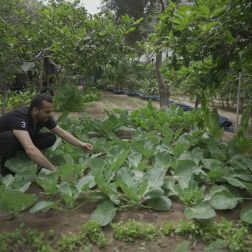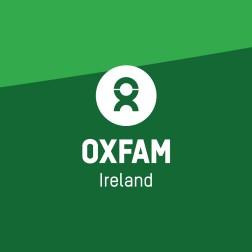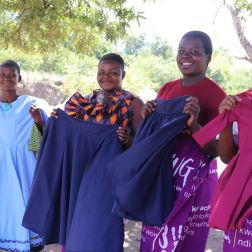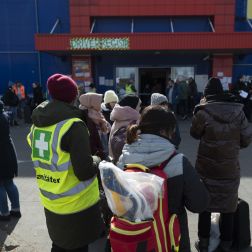- 4 mins read time
- Published: 15th February 2016
#GE16: Rising inequality is a key election issue for 8 out of 10 people in Ireland
As voters in the Republic of Ireland prepare to go to the polls on Friday February 26th, a new survey by Oxfam Ireland has found that 8 out of 10 (81%) people want politicians to make inequality a key issue in the general election. 82% agree that the next Taoiseach should prioritise tackling inequality in the new programme for government, specifically addressing tax dodging, equal pay and access to healthcare. 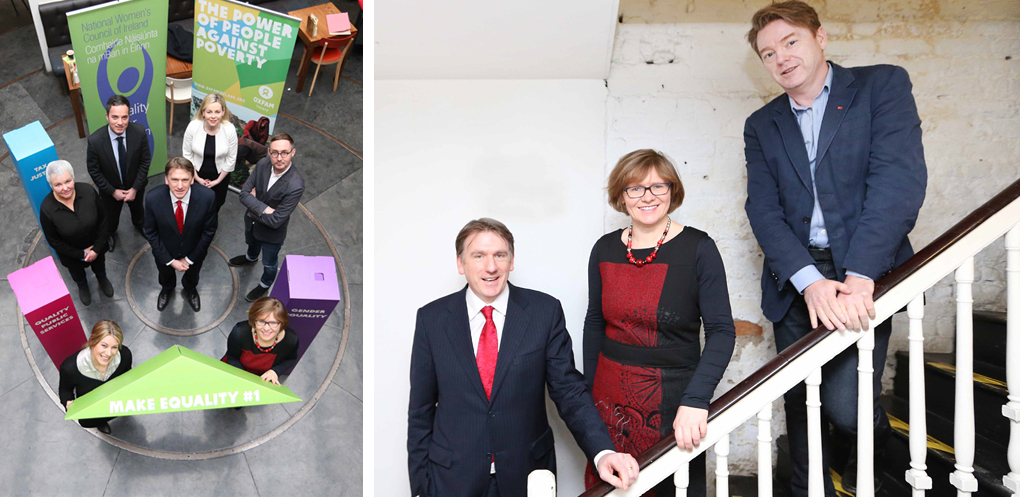 Above left: Back row from left - Bríd Smith (Anti Austerity Alliance–People Before Profit), John Lyons (Labour), Oxfam Ireland Chief Executive Jim Clarken, Lorraine Clifford-Lee (Fianna Fáil) and Eoin Ó Broin (Sinn Féin). Front row - Carol Hunt (Independent Alliance) and Director of National Women’s Council of Ireland Orla O'Connor. Above right: Jim Clarken and Orla O’Connor with economist David McWilliams who hosted the Make Equality #1 event focusing on economic and gender equality. Photos: Sasko Lazarov/Photocall Ireland This widespread opinion stems from the broader concern that Ireland is becoming a more unequal place – the survey revealed almost 8 out 10 (79%) of Irish people believe the gap between the richest and the rest of society is widening. The Empathy Research nationwide survey was launched today at the Make Equality #1 pre-election event hosted by Oxfam Ireland and the National Women’s Council of Ireland (NWCI) and was chaired by economist David McWilliams with general election candidates Lorraine Clifford-Lee (Fianna Fáil), Carol Hunt (Independent Alliance), John Lyons (Labour), Eoin Ó Broin (Sinn Féin) and Bríd Smith (Anti-Austerity Alliance–People Before Profit) debating economic and gender inequality.
Above left: Back row from left - Bríd Smith (Anti Austerity Alliance–People Before Profit), John Lyons (Labour), Oxfam Ireland Chief Executive Jim Clarken, Lorraine Clifford-Lee (Fianna Fáil) and Eoin Ó Broin (Sinn Féin). Front row - Carol Hunt (Independent Alliance) and Director of National Women’s Council of Ireland Orla O'Connor. Above right: Jim Clarken and Orla O’Connor with economist David McWilliams who hosted the Make Equality #1 event focusing on economic and gender equality. Photos: Sasko Lazarov/Photocall Ireland This widespread opinion stems from the broader concern that Ireland is becoming a more unequal place – the survey revealed almost 8 out 10 (79%) of Irish people believe the gap between the richest and the rest of society is widening. The Empathy Research nationwide survey was launched today at the Make Equality #1 pre-election event hosted by Oxfam Ireland and the National Women’s Council of Ireland (NWCI) and was chaired by economist David McWilliams with general election candidates Lorraine Clifford-Lee (Fianna Fáil), Carol Hunt (Independent Alliance), John Lyons (Labour), Eoin Ó Broin (Sinn Féin) and Bríd Smith (Anti-Austerity Alliance–People Before Profit) debating economic and gender inequality.
You can listen to the full 'Make Equality 1' debate below.
Oxfam Ireland Chief Executive Jim Clarken says: “This survey confirms that rising inequality is clearly at the forefront of Irish people’s minds as they prepare to go the polls. We live in a world where the richest 1% own more wealth than everyone else put together. Ordinary working families are up against odds that are impossible to beat and poorer people are paying the biggest price for rapidly increasing inequality. “Every day Oxfam works to close the inequality gap from the bottom up by helping people to lift themselves out of poverty. Today, along with the people of Ireland, we demand more action in closing the gap from the top down too, tackling a toxic tax system, ensuring quality services for all and closing the gender pay gap. “Inequality is not inevitable – it is the result of policy choices. The upcoming general election offers an important opportunity to shape a recovery that includes everyone.” Director of National Women’s Council of Ireland Orla O'Connor says: “NWCI are calling on the next Government to prioritise equality budgeting and serious investment in public services. Tackling violence against women, delivery of quality health and maternity services, and providing a universal pension are all essential for women’s equality and all dependent on the resources being invested. There is a real danger that parties which focus on short-term tax cuts will not be in a position to deliver that investment. 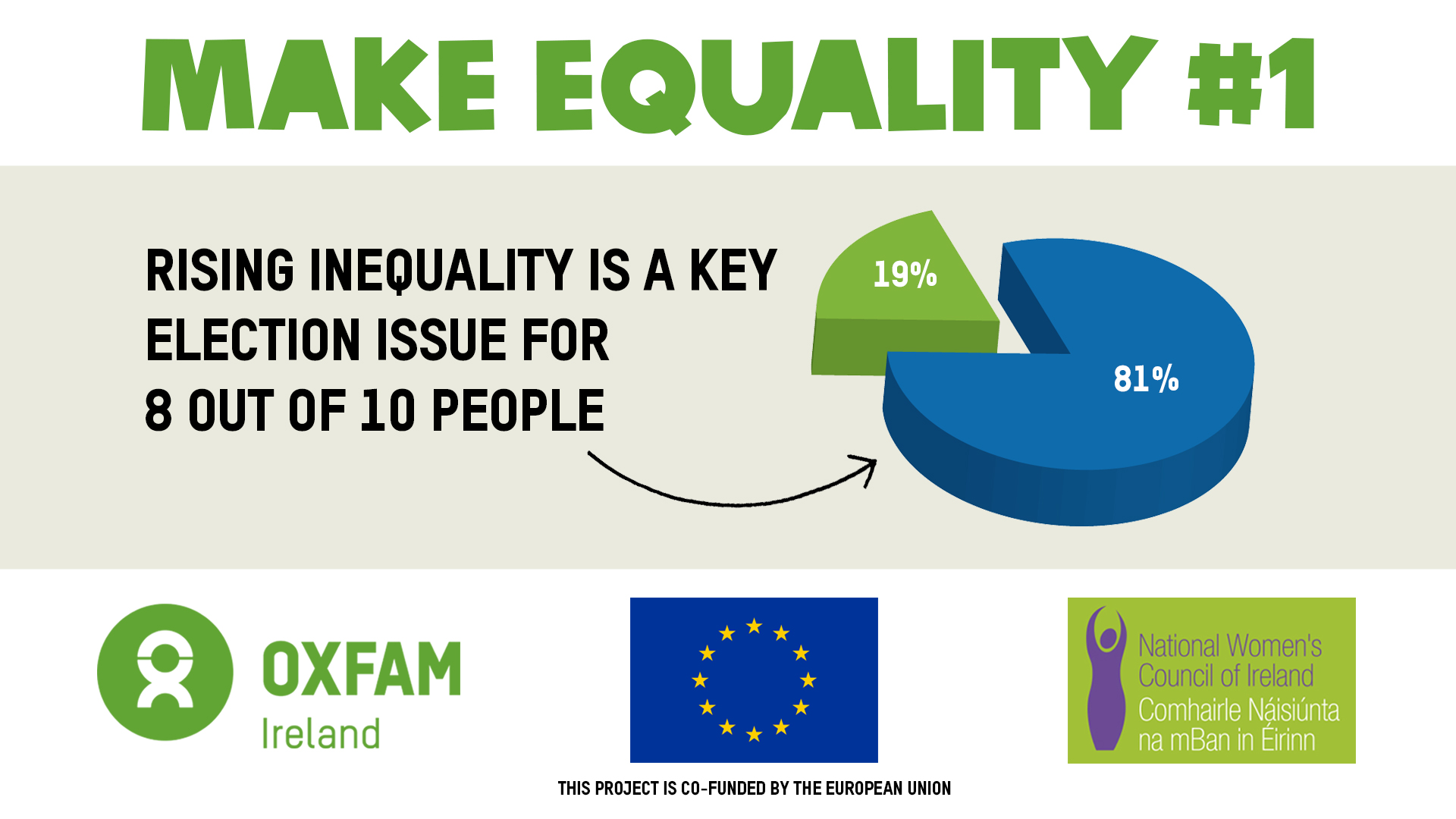 “Equal pay is a major concern highlighted in the survey and in Ireland the gender pay gap has actually risen. A majority of those on low pay or insecure part-time contracts are women with 50% now earning €20,000 or less. This negative spiral must be halted and reversed. Whichever parties form the next Government they must legislate against precarious work, support a living wage and attach strong employment, equality and environmental standards to public spending while also promoting gender balance in senior roles.” 84% of Irish adults believe that women in Ireland being paid over 14% less than men is unfair – with women stronger in this belief than men (92% vs. 74%). The NWCI is calling for an end to the gender pay gap to be named as a goal within the new programme for government. The survey also shows growing concern about large-scale tax dodging with more than 8 out of 10 (86%) of Irish people believing that big companies and wealthy individuals are using tax loopholes to dodge paying their fair share of taxes. 83% agreed that tax dodging means vital public services like schools and hospitals in Ireland and across the world are suffering.
“Equal pay is a major concern highlighted in the survey and in Ireland the gender pay gap has actually risen. A majority of those on low pay or insecure part-time contracts are women with 50% now earning €20,000 or less. This negative spiral must be halted and reversed. Whichever parties form the next Government they must legislate against precarious work, support a living wage and attach strong employment, equality and environmental standards to public spending while also promoting gender balance in senior roles.” 84% of Irish adults believe that women in Ireland being paid over 14% less than men is unfair – with women stronger in this belief than men (92% vs. 74%). The NWCI is calling for an end to the gender pay gap to be named as a goal within the new programme for government. The survey also shows growing concern about large-scale tax dodging with more than 8 out of 10 (86%) of Irish people believing that big companies and wealthy individuals are using tax loopholes to dodge paying their fair share of taxes. 83% agreed that tax dodging means vital public services like schools and hospitals in Ireland and across the world are suffering.
